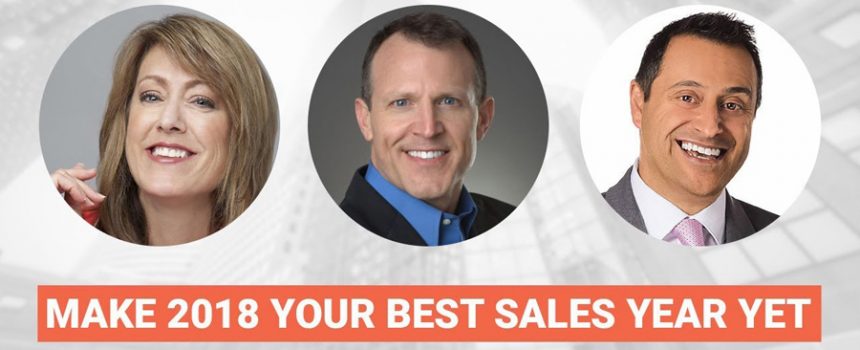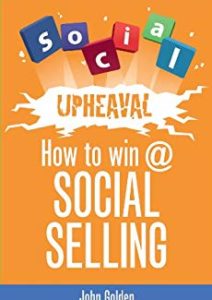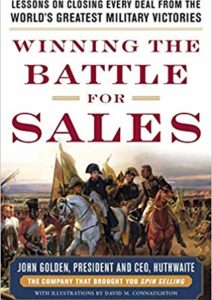We are officially halfway through 2018, and it’s a great time to be in sales. This sales article provides actionable insights to help you understand the current climate of the business world, and leverage tools and skills to make this the best year yet.
Technology Changes:
The sales world has been inundated with a surplus of different technology advances and tools. Historically, they have just added minutiae and chaos as salespeople have tried to adapt to these new technologies. The last few years have primarily been a learning curve on how to use and integrate them. But now, we’re coming into a time when these automated processes are more integrated, and finally freeing up time for salespeople, allowing them to spend more time on actual selling activities like face to face interactions. The tools have never been better, and our understanding of what it takes to succeed has never been better. Plus, there have been discoveries in behavioral science, messaging, outreach effectiveness, and social engagement that make it even easier for salespeople to be successful. All of these areas make it such that if a salesperson is willing to learn, and they’re willing to put in sufficient energy, they’re guaranteed success.
- Spend more time doing a good, clean sales job instead of trying to coordinate your technology and your team.
- Salespeople have gotten past the learning curve of the tools. Apply yourself and be willing to learn best practices, and you have a very surefire path to success.
Plan Better:
Salespeople can be terrible planners. This is to their detriment. If you want to be successful the rest of this year, planning has to be integrated, and salespeople have to stick to the plans that they make. The key to planning for salespeople is to keep things simple. Often, they don’t turn the planning they’ve done into concrete, actionable steps, or stick to those steps, which leads to wasted time and energy. Another way to better plan for the future is to become domain experts. Research is showing that customers prefer to talk to subject matter experts over salespeople, and more companies are altering their sales team to include more of these experts. Salespeople can become experts themselves by maximizing their domain knowledge so that they can deliver this to customers. Where sales knowledge meets domain knowledge intersect is where value is created.
- Identify target accounts, identify the channels that you want to use to engage prospects, keep track of your sales plan and the activities you want to use to hit your goal, and then put everything in your calendar.
- Use the multitude of free tools available to maximize domain knowledge and become more of a subject matter expert.
- Once you have a documented sales plan and clearly understand what activities to focus on, understand how you’re focusing on your skills and advancing your skills to ensure that you’re effectively executing those activities.
Create New Habits:
- Formally undertake your personal development. Don’t wait for your institution to provide training. The way to develop skills, behaviors, and beliefs is to be consistently and intentionally practicing your skills while adding new ones to your repertoire.
- Ensure that your presentation structure mimics a conversation and that the buyer communicates more than you do. Typically presentations are formatted in a long, linear fashion, but that is not how we communicate today. Review what you’re doing and see if it’s designed to invite conversation. Studies show that the more the customer talks, the more likely they are to close the deal with you.
- Use the tools that you have available. Often, sales reps are only aware of half the capabilities that their technology provides. Take the time to master your tools.
Stop Bad Habits:
There are a few bad habits that salespeople continue to do that only hurt their career and their potential for selling. The first thing to avoid is talking so much about yourself. Salespeople know more about their customers today than they ever have before, and customers know more about us than they ever have as well. It’s very rare that you walk into a meeting and the buyer doesn’t know who you are or your background, and yet so many presentations and meetings still start with a company overview that is a waste of the precious first few minutes. Another bad habit to avoid is when salespeople email proposals to their clients. Salespeople are only hurting themselves when they package up a proposal, send it over, and expect everything to happen on auto-pilot.
- Avoid talking about yourself. Make it less about you, and more about them.
- Stop emailing proposals to clients. Instead, they should be scheduling the time to review proposals with the client. It gives you a chance to do a mini-sale on every little point inside the proposal and prevents a situation where the client goes radio silent on you.
Grab More Money:
One of the most significant ways that salespeople lose deals today is that it results in a no-decision. This is typically the result of three things. If you can eliminate those three things, you have a better chance of getting some commitment. The first is that the issue or problem is not significant enough to solve. The company decides that the issue is not substantial enough or problematic enough to invest the time and resources into your solution to solve it. Secondly, the customer might walk away from a sale because they don’t see the value in making the chance. And finally, sometimes there is a no-pressure time frame that matters to the customer. Another reason why salespeople lose out on money is by not following a sales process. By developing your skills around a process, you will uncover and solve problems as they happen, and you will move your buyer through the sales process more swiftly.
- Work with your customer and have elevated the business issue to a priority. Help them see the value of what you are selling or providing. Find out the critical date for your customers and explore what will happen if they don’t have things in place by a particular time.
- Don’t underestimate the value of following the sales process.
- Stop assessing your performance based on the end result, and start measuring your performance based on the activity you’ve identified that you’re going to do, and do well. If you hit your activity goals and you are competent and efficient at doing those activity goals, the results will come.
Buyer Trends:
The most significant trend in buyer behavior that salespeople should be looking at is customer avoidance. The recent data suggests that prospects are drowning in sales and marketing noise, and as a result, they put up barriers to protect their time, both emotionally and by using actual tools to filter media messages. Additionally, a lot of buyers are looking for introductions and referrals to help improve their lives. Don’t be afraid to give referrals, and ask your current clients to be advocates for your business. A final buyer trend is in how people are consuming information today. We take in information for as long as we are interested, and then we change our focus. As salespeople, we have learned a lot about outreach, and how to deliver concise, crisp, attention-grabbing emails that get meetings with prospects, but then start regurgitating information and talking at someone once the meeting begins.
- Utilize new channels, such as video media, to get past the barrier that many consumers have.
- Ensure that your communication is aligned with how people take in information. Don’t use concise, attention-grabbing methods in the prospecting, but then discontinue this style after meeting in person.
- Advocates are one of the best ways to grow your business and better your reputation. Don’t be afraid to give referrals as a consumer, and ask for advocacy as a seller.
Final Tips:
- Take time out to document your sales strategy for the year, stop doing what you’ve done year after year, and develop an action plan. Then, build your skills around that action plan, and seek accountability and support to help maintain the plan.
- Pick one or two things that you can commit to doing. Write it down, get support from a manager, and maintain those before layering in other things.
- Invest in learning and developing yourself. If you invest 5% of your income on personal development, there will come a day when your 5% will be so significant that you have a difficult time spending it.
Information for this article was sourced from this top sales expert panel discussion, hosted by John Golden, featuring the expert opinions of Julie Hansen, James Muir, and Joe Micallef.






Comments